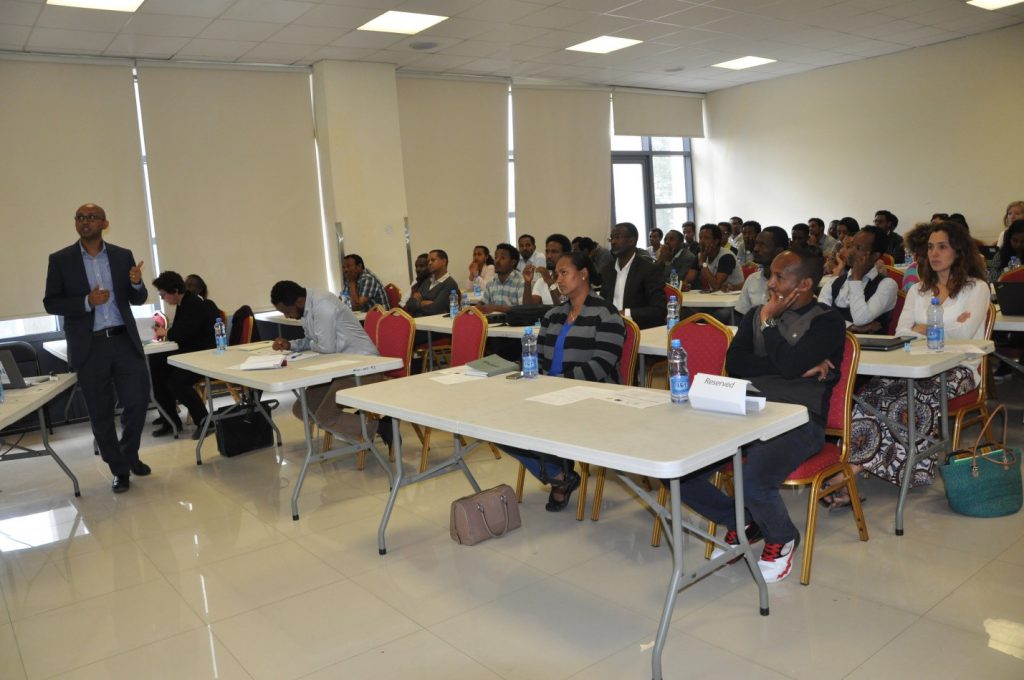The Third NIPN Nutrition Research and Policy Seminar Kicked off

The National Information Platform for Nutrition (NIPN) hosted its third seminar on December 7, 2018 at the Ethiopian Public Health Institute’s (EPHI) training center. With 64 participants from different sectors and organizations, good presentations and lively discussions, this was another successful seminar which was jointly organized by EPHI and the International Food Policy Research Institute (IFPRI) around the topic “Nutrition Sensitive Agriculture. What does the evidence tell us?”.
During his opening remark, Ato Solomon Eshetu, A/Director of the Food Science and Nutrition Research Directorate of EPHI, reminded the audience that this seminar series fits well within the general objective of NIPN, which is to promote evidence-based decision making.
The first presentation focused on the linkages between Irrigation and Nutrition, bringing global and Ethiopian evidence and was presented by Dr. Dawit Mekonnen, Research Fellow, IFPRI (Environment, Production and Technology Division).
Dr Mekonnen explored the potentials of small-scale irrigation to contribute to improved nutrition outcomes and reviewed the pathways through which small scale irrigation affects nutrition, but with a focus on the production and income pathways.
He concluded that evidence in Ethiopia shows that irrigation has a strong effect on household’s economic access to food and on nutritional outcomes of women and children. As such, it needs to be promoted on its merit to improve nutrition, in addition to its potential for higher income and yield. However, he also warned that potential adverse impacts (pollution and water shortages) need to be monitored.
The second presentation was delivered by Dr. Namukolo Covic, Senior Research Coordinator, Agriculture for Nutrition and Health Program. She presented a comprehensive global review which was carried out by Ruel, Quisumbing and Balagamwala and which reviewed 10 years of evidence on the linkages between agriculture and nutrition. Subsequently, Dr Covic linked this global evidence to Ethiopia. She concluded nutrition sensitive agriculture programmes work and can have impacts on improving a variety of diet and nutrition outcomes for households, mothers and children, especially when combined with behavior change communication, women’s empowerment, WASH and micronutrient fortified products.
Impacts on stunting however remain hard to achieve even with well-designed, targeted, implemented programs, and rigorous evaluations.
Following the two presentation, participants engaged in a lively discussion.
The presenters finally suggested NIPN to further promote the availability of high-quality data which will allow to track progress of nutrition sensitive agriculture, but also to track the progress on tracking dietary diversity and coordination mechanism.
